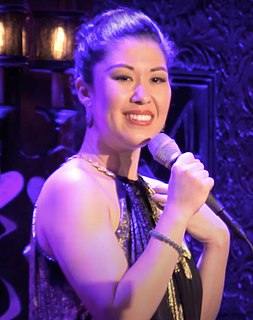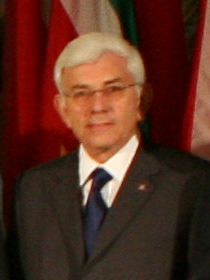A Quote by Ruthie Ann Miles
Definitely the Korean culture is very strong to me, and I grew up in Hawaii where Asian-Americans are the dominant culture, but I never thought of myself as the minority.
Related Quotes
Many teachers of the Sixties generation said "We will steal your children", and they did. A significant part of America has converted to the ideas of the 1960s - hedonism, self-indulgence and consumerism. For half of all Americans today, the Woodstock culture of the Sixties is the culture they grew up with - their traditional culture. For them, Judeo-Christian culture is outside the mainstream now. The counter-culture has become the dominant culture, and the former culture a dissident culture - something that is far out, and 'extreme'.
I was on an army show, and in the army - especially in Korean culture - there's a very, very strict hierarchy. Obviously, you would not talk informally or disrespectfully to your commanding officer. But me, in my limited Korean, I basically told my commanding officer, 'Thou shalt forget!' The Korean public thought it was really funny.
I don't think there is ever a direct connection between the philosophical community and the wider populus. I'm very aware of this because I've been working on a book on ideas in global philosophy and you always find some kind of relation between the dominant philosophies in a culture and the folk philosophy but it's not a straight-down dissemination. It's partly bottom-up. Thinkers are the products of the cultures they grew-up in. They aspire to thinking purely objectively and universally, but they are often reflecting ways of thought that are embedded in a culture.
I was on television a couple of years ago and the reporter asked me, "How does it feel being on mainstream media? It's not often poets get on mainstream media." I said, "Well I think you're the dominant media, the dominant culture, but you're not the mainstream media. The mainstream media is still the high culture of intellectuals: writers, readers, editors, librarians, professors, artists, art critics, poets, novelists, and people who think. They are the mainstream culture, even though you may be the dominant culture."
I grew up in the age of discount air fare, and for me, the act of joining a culture was a great way about learning about that different culture. So I grew up in the South, and went to college in the North, and found out that I learned about myself as a Southerner by leaving the South and going to the Northeast.
Within the model minority rhetoric, Asian Americans are represented as “good” minorities and African Americans are represented as “bad” minorities. Here, the achievements of Asian Americans are used to discipline African Americans. As model minorities, Asian Americans achieved the status of “honorary Whites”. Again it is important to point out that the honorary whiteness of Asian Americans was granted at the expense of Blacks. It is also significant that as “honorary Whites,” Asian Americans do not have the actual privileges associated with “real” whiteness.
People take pride in being Irish-American and Italian-American. They have a particular culture that infuses the whole culture and makes it richer and more interesting. I think if we can expand that attitude to embrace African-Americans and Latino-Americans and Asian-Americans, then we will be in a position where all our kids can feel comfortable with the worlds they are coming out of, knowing they are part of something larger.
A lot of native culture has been destroyed. So you already feel lost inside your culture. And then you add up feeling lost and insignificant inside the larger culture. So you end up feeling lost squared. And to never be recognized, to never have any power, you know, other minority communities actually have a lot of economic, cultural power.




































